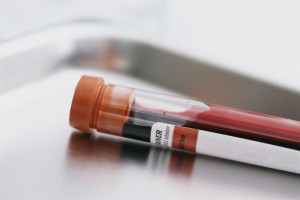Have you ever heard of blood test results being contested in a DUI case?
The Importance of a Blood Test
One of the most important pieces of evidence in a DUI case is the blood test result. Once a subject’s blood is drawn, the sample is put into police custody. The blood in evidence is tested for alcohol, and results are reported as evidence.
Scottsdale PD Uses Blood Test Results in Court
In Scottsdale, blood tests are the most common test conducted on someone who has been arrested for DUI. Since these results are being used to convict defendants and put them in jail or prison, ensuring that these results are reliable and trustworthy is an extremely serious matter.
This is especially true important Arizona has a reputation for having the toughest consequences for DUI convictions in America.
Faulty Blood Tests In the Scottsdale Crime Lab Questioned
Despite the fact that a DUI arrest can affect someone’s life and liberty, court documents and evidence now show that for the past 4 years, faulty machinery at the Scottsdale Crime Lab has been used to convict Scottsdale residents accused of DUI.
 Eleven felony DUI cases have been consolidated together in the Maricopa County Superior Court to challenge the scientific reliability of this machine.
Eleven felony DUI cases have been consolidated together in the Maricopa County Superior Court to challenge the scientific reliability of this machine.
Myself (Mark DuBiel), and attorneys W. Clifford Girard Jr., Joe St. Louis, and Lawrence Koplow have been investigating these problems for years.
We are currently arguing whether or not the Scottsdale Crime Lab’s methodology and procedures meet generally accepted scientific standards under the Daubert standard (Daubert v. Merrell Dow Pharmaceuticals, Inc. 509 U.S. 579 (1993).
The legal question here can be phrased bluntly: Can a machine that has been generating serious and unfixed errors almost every month for four years be considered trustworthy?
Information we have gathered so far and presented to various local and national experts yields a resounding “NO.”
Problems Since 2009
In 2009, old software was used on a then-new machine by a crime lab supervisor because the other analysts, police, and attorneys were used to reading the reports from the old machine.
Calibration Errors
But according to the supervisor, the software was incompatible. Results given by the new machine inexplicably showed calibration errors on a face sheet of up to 100% error, errors later described as “gobbledygook” by the senior analyst.
Mislabeled Vials
Even more disturbing, vials of blood evidence that are specifically labeled with vial numbers corresponding to a unique case were being mislabeled. Far too often, the Scottsdale Crime Lab analysts didn’t acknowledge these errors existed unless asked specifically about them in an interview or being cross-examined in court.
Machine Jams
In addition to producing these aforementioned calibration errors and mislabeled vials, this machine has vial jams and drops data.
These problems were also not readily provided to clients or their attorneys. They only retrieved them by chance, and certainly not through Scottsdale.
A Software Patch Didn’t Solve the Problem
Yet, they were serious enough to prompt a call to the manufacturer Perkin & Elmer to try and fix the problem; in the Summer of 2010, the manufacturer sent out a software technician, who installed an un-vetted “software patch” on the problematic machine in an attempt to correct the problem.
But even after this “software patch” was installed, the problem didn’t go away. After being questioned about the totality of errors that have been discovered to date, the manufacturer has shockingly admitted that the machine should have been taken out of service.
Scottsdale Tried to Return the Machine But Was Turned Down
Even more incredible, one of the lab’s own analysts has admitted in a prior court hearing that the lab tried to return the machine to Perkin & Elmer, but the company refused to take it back.
These errors continue to occur on a fairly regular basis, yet the lab has not documented these problems appropriately or taken the necessary measures to investigate and repair the machine.
Although a “root cause failure analysis” is required under relevant scientific standards, one still has not been conducted.
The Courts Will Decide The Outcome of These Failures
Hearings will continue in the Maricopa County Superior Court on April 16, 2013. The final ruling, in this case, may affect how forensic scientific evidence is handled in future cases. When convictions or judgments are made upon untrustworthy evidence, this seriously undermines confidence in the justice system, which is a concern not only for defendants charged with a crime but for all citizens.
Links to further reading:
http://www.sfgate.com/news/




